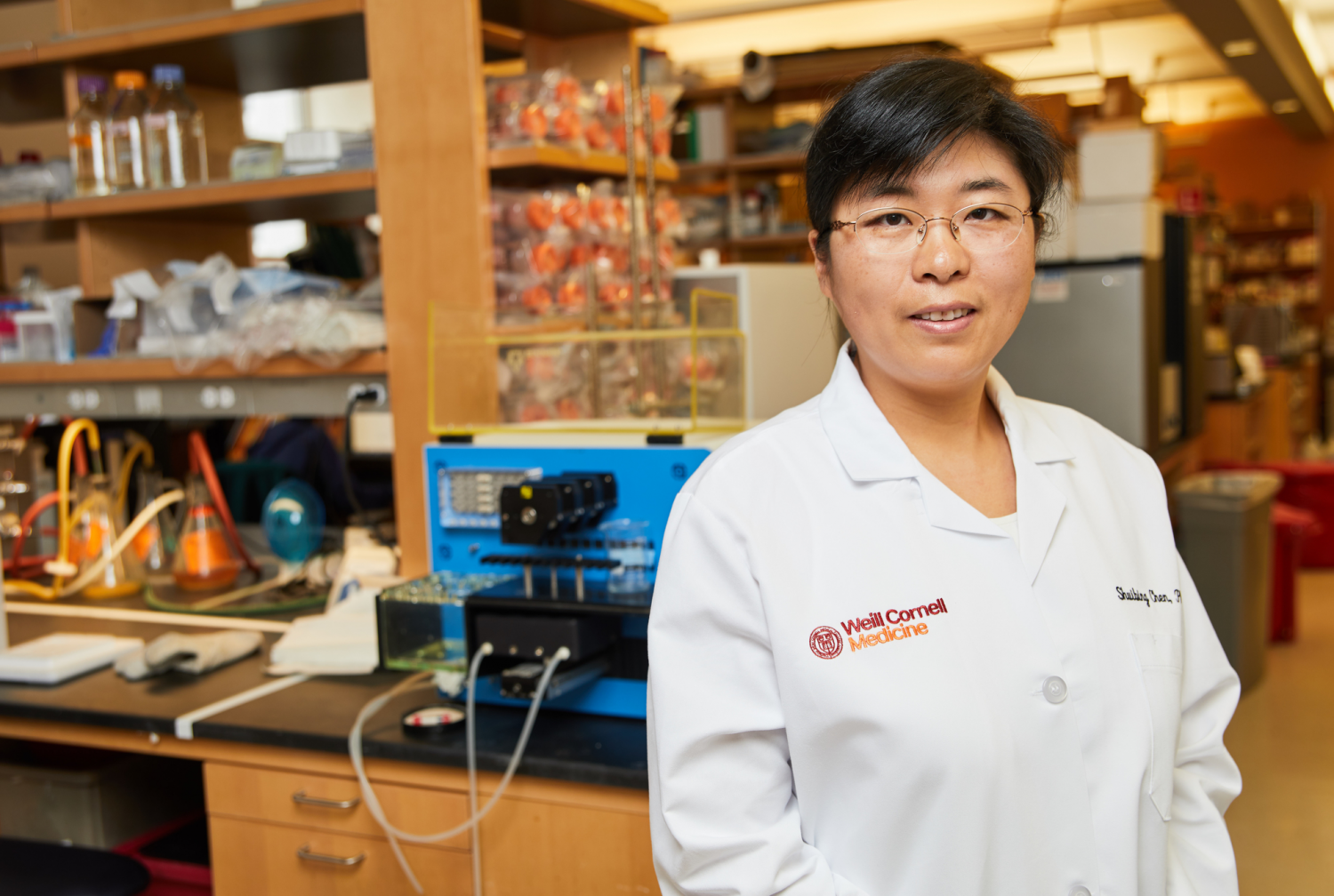Weill Cornell Medical College researcher Dr. Shuibing Chen's pursuit of a treatment or cure for type 2 diabetes received a boost a few weeks ago after receiving one of 51 New Innovator awards from the National Institutes of Health.
The award carries $1.5 million in funding over five years supporting Dr. Chen's research into type 2 diabetes — which affects more than 25 million Americans and consumes more than $210 billion in United States health care costs every year — and how to prevent or treat it.
"This new award is extremely important for my laboratory," said Dr. Chen, assistant professor of chemical biology in surgery and assistant professor of chemical biology in biochemistry at Weill Cornell. "Finding the cure for type 2 diabetes mellitus is the core mission of my laboratory. This innovator award recognizes the significance of this mission."
Established in 2007, the New Innovator award initiative supports investigators who are within 10 years of their terminal degree or clinical residency, but who have not yet received a research project grant or equivalent grant from the National Institutes of Health to conduct exceptionally innovative research.
Type 2 diabetes is a metabolic disorder, often caused by obesity, that's characterized by high blood glucose in the context of insulin resistance and relative insulin deficiency. While those involved in health care, as well as policymakers, are working on ways to curb the obesity epidemic, Dr. Chen is working behind the scenes to see if type 2 diabetes, once it's developed in a patient, can be reversed.
To determine that, Dr. Chen will study the role of the environment and genetic factors in the progression and regression of cellular dysfunction characteristic of type 2 diabetes in mouse models humanized through stem cells. Using these models, Dr. Chen and her team hope to identify the "tipping point," of type 2 diabetes' progression, thereby learning how to prevent or treat the chronic disease.
"The classic pathogenesis of type 2 diabetes mellitus involves insulin resistance and pancreatic β cell dysfunction," Dr. Chen said. "Pancreatic β cell dysfunction is a key step determining the progression from metabolic impairments to a disease state. We will create two novel models to monitor the progression and regression of pancreatic β cell dysfunction in real-time. By studying the mechanism controlling the progression, we will learn how to prevent type 2 diabetes mellitus. Understanding the mechanism controlling the regression of pancreatic β cell dysfunction will help us to identify novel drug target to reverse the disease state."

